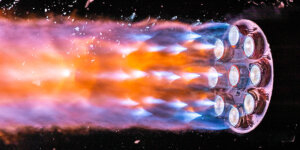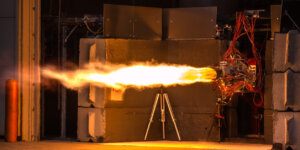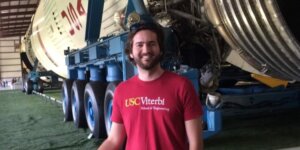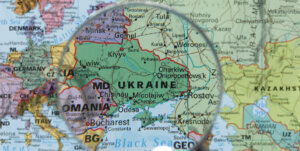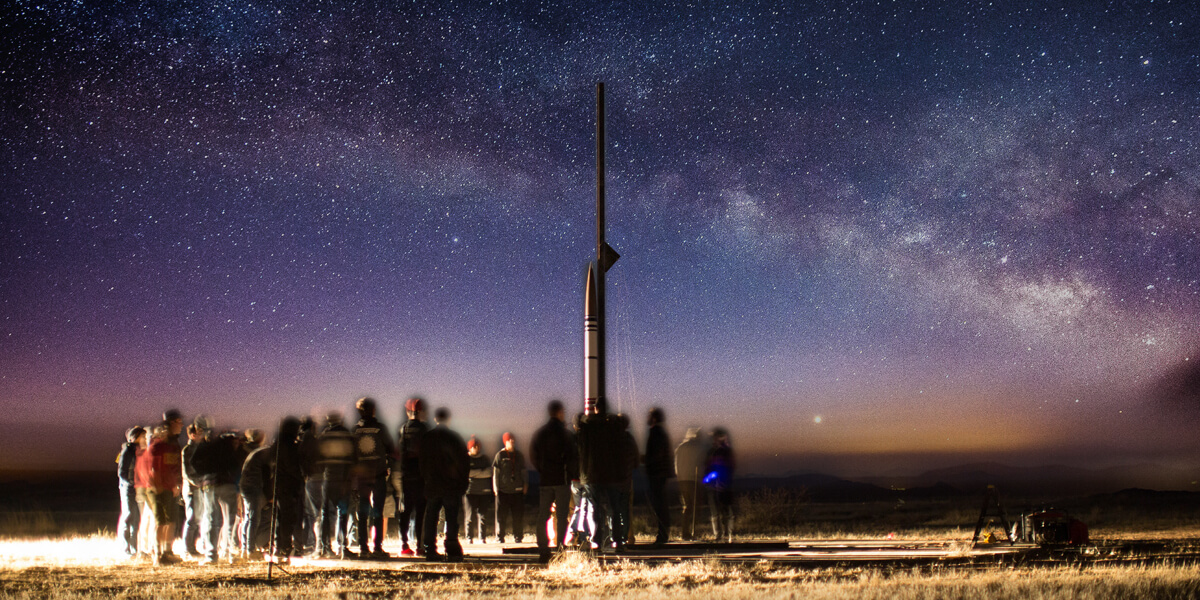
Photo/Rocket Propulsion Lab
At the 68th International Astronautical Congress (IAC), the General Assembly of the International Astronautical Federation (IAF) admitted the USC Viterbi School of Engineering to its membership.
The meeting was held in Adelaide, Australia from September 25-29. In attendance was Viterbi’s Department of Astronautical Engineering (ASTE) Chair Mike Gruntman, who is an elected member of the IAF’s partner organization, the International Academy of Astronautics (IAA).
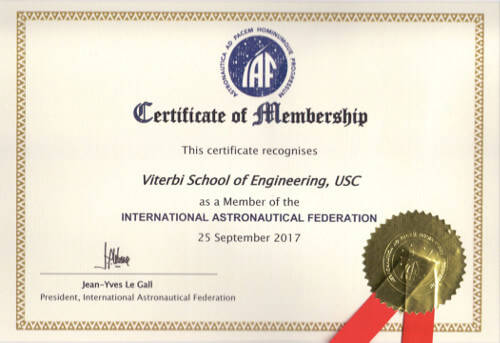
USC Viterbi’s IAF Certificate of Membership. Photo/Mike Gruntman
“USC Astronautics is among the most vibrant academic programs worldwide,” said USC Viterbi Dean Yannis C. Yortsos. “The IAF membership is a clear recognition of the department’s impact on education, research and innovation. With endeavors that span a wide array of space topics, including world record breaking rocket launches by our student Rocket Propulsion Lab, and a world leading M.S. program in Astronautics, ASTE is poised strategically in today’s exciting times in space.”
Founded in 1951, the IAF is the world’s leading professional space body. It is comprised of over 440 members including national space agencies, leading space and rocket companies, research and development centers, professional and learned societies, and a few dozen universities spanning six continents and 67 countries. Notable members include NASA, the European Space Agency (ESA), Boeing and Lockheed-Martin.
Through conferences, meetings and workshops, the IAF promotes cooperation and shared knowledge between organizations, as well as the advancement of international development and the preparation of tomorrow’s workforce.
“Joining IAF is a recognition of the international reputation of USC Viterbi’s space engineering program. The Department of Astronautical Engineering provides a particularly influential voice in advancing education of future rocket scientists,” Gruntman said. “Membership in IAF will reinforce USC Viterbi’s reputation as a premier destination for space engineering education.”
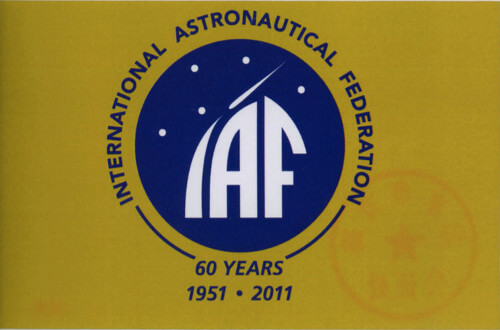
In addition to a membership certificate, the USC Viterbi received an IAF 60th Anniversary Flag that was flown in space for 444 days aboard the Soyuz spacecraft, International Space Station, Endeavor Space Shuttle, and China’s Tiangong-1 and Shenzhou-9. Photo/Mike Gruntman
There is no doubt that USC Viterbi has been an active participant in space research and education. The Space Engineering Research Center (SERC) is dedicated to space engineering, research and education through the development of spacecraft and satellites. In addition, student led design/build projects like the Liquid Propulsion Lab (LPL) and Rocket Propulsion Lab (RPL) promote innovation and hands-on learning. In March, the RPL launched a rocket that reached 144,000 feet, the highest altitude worldwide for a vehicle designed and manufactured entirely by students, putting them even closer to reaching their goal of sending a home-made rocket into space.
“ASTE is a unique, pure-space academic department,” Gruntman said. “It advances space technology through its faculty’s quality research and participation in space programs and through vibrant educational programs attracting undergraduate and graduate students. Our unique department provides space engineering students with the knowledge and training necessary for exciting technical careers and leadership positions in the space enterprise.”
Published on November 8th, 2017
Last updated on November 8th, 2017




